Most tombstones are like bookends, merely bracketing a life with the date of birth and the date of death.
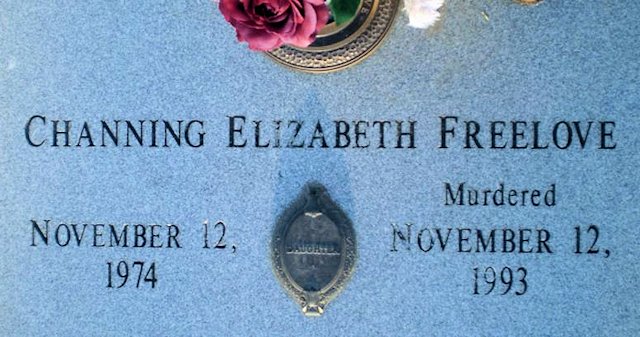
But now and then a tombstone hints at a story behind the date of death.
It was a crime that led two women to the cemetery, two men to the penitentiary, and Fort Worth police detectives to the edge of despair.
It was a crime committed in a nether world of light and shadow, where “good girls” met in vacant lots at night with “bad boys,” where people led double lives unbeknownst to family and friends, where two corners of a love triangle were wrongly accused of one crime but rightfully accused of another.
On the night of November 12, 1993 Channing Freelove was celebrating her nineteenth birthday with her apartment roommates, Melanie Golchert, eighteen, and another woman. Freelove and Golchert had graduated from Paschal High School the previous year with scholastic honors and had played varsity sports. Both were attending college on scholarships: Freelove at TCU, Golchert at TCJC. Freelove was a premed student taking advanced-placement courses.
About 10:30 p.m. Freelove’s beeper sounded. She looked at the telephone number on the display and returned the call.
Then Channing Freelove the TCU premed student and Melanie Golchert the honor student left the apartment. As Freelove walked out the door, she tucked a pistol into her waistband.
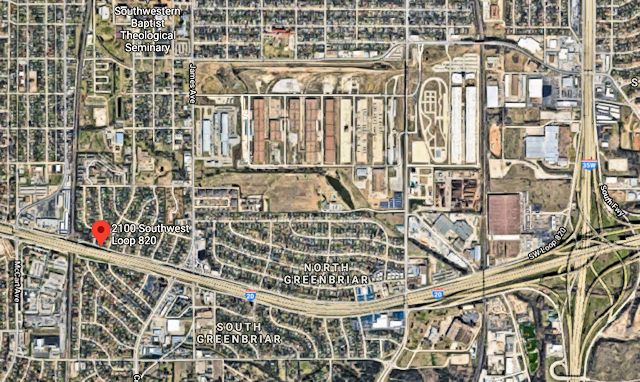 Shortly before 4 a.m. the next morning a man riding a bicycle passed a 1984 Oldsmobile parked in the driveway of an otherwise-vacant lot near the 2100 block of Southwest Loop 820 just east of McCart Avenue. By the light of a street lamp he saw two crumpled bodies—one on each side of the car, both lying face down.
Shortly before 4 a.m. the next morning a man riding a bicycle passed a 1984 Oldsmobile parked in the driveway of an otherwise-vacant lot near the 2100 block of Southwest Loop 820 just east of McCart Avenue. By the light of a street lamp he saw two crumpled bodies—one on each side of the car, both lying face down.
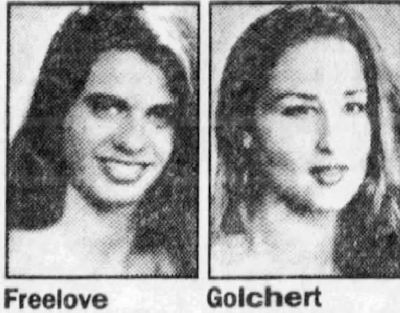 Channing Freelove had been shot in the neck, her pistol still in her waistband. Melanie Golchert had been shot in the head. Both had been shot with a .380-caliber handgun.
Channing Freelove had been shot in the neck, her pistol still in her waistband. Melanie Golchert had been shot in the head. Both had been shot with a .380-caliber handgun.
They had been executed.

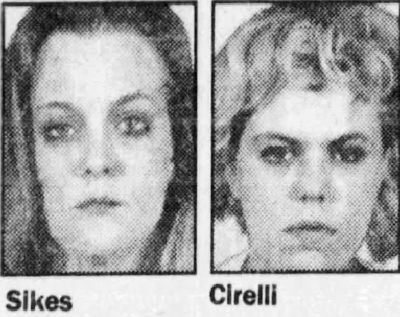 In the first days of a police investigation, presumptions, misinformation, and downright lies can swirl together to create a fog out of which come “close, but no cigar” theories.
In the first days of a police investigation, presumptions, misinformation, and downright lies can swirl together to create a fog out of which come “close, but no cigar” theories.
Two days after the bodies of Freelove and Golchert were found, police arrested two women for soliciting their murder.
Brandi Michelle Cirelli, twenty, and Sherrie Lynn Sikes, twenty-four, were arrested as they tried to hide from police officers who forced their way into the women’s apartment in southwest Fort Worth.
Two police informants had told police that Cirelli and Sikes had solicited them to kill Freelove.
Police confirmed that they were seeking two men for the execution-style murders of Freelove and Golchert but said the two men being sought were not the two informants who had been solicited by Cirelli and Sikes. The two police informants were not arrested.
But there was another possibility: Police believed that Channing Freelove had been dealing marijuana.
The woman who shared an apartment with Freelove and Golchert told police that as Freelove and Golchert had left the apartment on the night they were killed, Freelove had told her they were leaving to sell marijuana to a man—the man who had paged her.
And there was still another possibility: Police said Freelove’s marijuana wholesaler had threatened her life.
Police said Freelove’s wholesaler had advanced her $6,000 worth of marijuana. Freelove planned to sell the marijuana at a profit and pay back the wholesaler. But someone broke into her Park Hill Drive apartment—twice—and stole most of the marijuana, rendering her unable to repay her wholesaler.
The two thefts had left Freelove with just one pound of marijuana, which she had intended to sell to the man who had paged her November 12.
Police said a witness overheard Freelove pleading for her life in a telephone conversation with her wholesaler.
And Freelove told a friend, “If I don’t come up with the money or pot in two weeks, he’s going to kill me. He’s not joking; he’s serious. This is my life.”
The friend said, “She said there was no way she could come up with the money in time.”
Police said that on the day before Freelove died, she had asked her parents for $6,000 to cover a drug debt.
Patrick Benshetler, eighteen, a friend of Freelove, said Freelove had suspected that Cirelli and Sikes, who were two of Freelove’s marijuana customers, had stolen her marijuana, even though both women had an alibi: They had been with Freelove at the time of the thefts.
Police confiscated four pounds of marijuana when Cirelli and Sikes were arrested at their apartment. Police suspected that the marijuana had been stolen from Freelove’s apartment.
But there was yet another possibility for the motive for murder: A police informant said that “Freelove, Golchert, Sikes, Cirelli and [a fifth woman] . . . had ongoing sexual relations with one another.”
Police speculated that Freelove was killed because she had rejected Cirelli and Sikes in favor of the fifth woman.
One of the two police informants said Cirelli had asked him what “it would take for him to take care of Channing [Freelove] for her.”
That solicitation, the informant said, came after Freelove and the fifth woman showed up at the apartment of Cirelli and Sikes.
The women argued, and Freelove threatened to jump from the balcony. Freelove then pulled a pistol and pointed it at Cirelli and Sikes, the informant said.
Another man in the apartment took the gun from Freelove and gave it to Cirelli.
“Brandi [Cirelli] then unloaded the gun, put it up to Channing’s chin and told her she didn’t want Channing to ever come back to her apartment and didn’t want to have anything to do with her,” the informant said.
Another informant who witnessed the argument said he later overheard Cirelli say, “I’m sick of [Freelove’s] high school crap. If she ever comes around here again, I’ll get rid of her my way.”
During the conversation about hiring someone to kill Freelove, the informant said, Sikes “asked Cirelli what she would do after Channing was killed, and Brandi [Cirelli] said she would just go and stay for a while with her mother in Arkansas.”
Meanwhile, a friend of both Golchert and Freelove refuted some of the police theories. He said Golchert was heterosexual.
But he said Freelove did have an affair first with Sikes and later with Cirelli and that still later Sikes and Cirelli began an affair, resulting in some jealousy among the women.
He also said Golchert used drugs but was not a seller.
He said, however, that Freelove was a dealer. (Police would later say that two-plus pounds of marijuana found in Golchert’s apartment belonged to Freelove.)
The friend said, “The money and the drugs belonged to Channing Freelove. She was the dealer, not Melanie. . . . Channing was the one with the beeper and talking about her deals.”
As for the murder of Melanie Golchert, the friend said, “She happened to be at the wrong place at the wrong time”—with the wrong people.
Sandy McKeon, a parent and president of the Paschal High School Booster Club, said, “I just can’t imagine that two girls that involved in school, that involved in sports, and getting good grades could be that involved in drugs. If this is true . . . where do we go from here when we have the cream of the crop fall victim to drugs?”
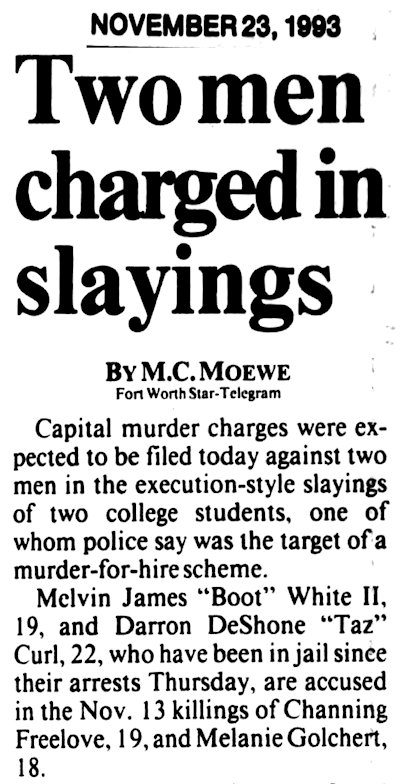
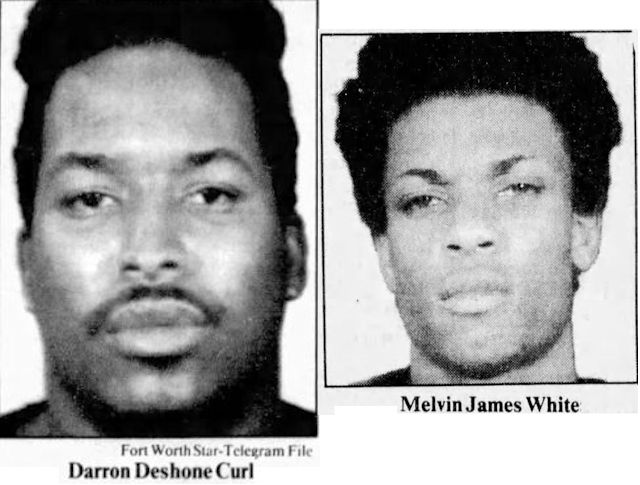 On November 18 police responded to a 911 call from a grocery store in the 3600 block of Alta Mesa Boulevard. Two customers were harassing the clerks.
On November 18 police responded to a 911 call from a grocery store in the 3600 block of Alta Mesa Boulevard. Two customers were harassing the clerks.
The call proved to be convenient for police: They already had warrants for the arrest of the two customers—for the murders of Channing Freelove and Melanie Golchert.
Melvin James “Boot” White II, nineteen, and Darron DeShone “Taz” Curl, twenty-two, were charged with capital murder.
Homicide Sergeant Paul Kratz said both suspects were “known members” of the Crips gang and had violent criminal records. When the arrests were made, police said, White was out on bail after being charged with attempted capital murder, and Curl was out on bail on a weapons charge.
Both suspects carried .380-caliber handguns—the caliber that had killed Freelove and Golchert.
Police said Freelove in the past had sold drugs to White and Curl as well as to Cirelli and Sikes, all of whom knew each other. Police said White and Curl were frequent visitors at the apartment of Cirelli and Sikes.
An informant told police that on the night Freelove was killed she was going to sell her last pound of marijuana to White.
After White had paged Freelove, she telephoned him.
White told her: “We’ll buy all you got right now. We’ve got a way of getting rid of it.”
The roommate of Freelove and Golchert said Freelove was worried as she left to meet White because he had never bought that much from her before.
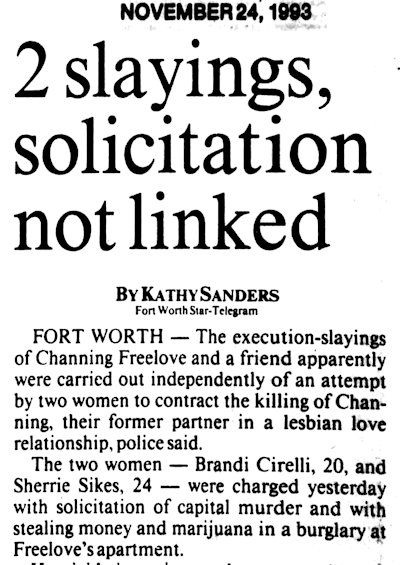 On November 24 came another twist: The Star-Telegram reported that the murders of Channing Freelove and Melanie Golchert had been a freelance job, not a contract job.
On November 24 came another twist: The Star-Telegram reported that the murders of Channing Freelove and Melanie Golchert had been a freelance job, not a contract job.
Police said the execution-style slayings had been carried out independently of an attempt by Brandi Cirelli and Sherrie Sikes to hire two police informants to kill Freelove.
The informants said they had refused the solicitation offer and, according to police, did not go to police until after Freelove and Golchert were found dead.
Nonetheless, Cirelli and Sikes were charged with solicitation of capital murder.
They also were charged with stealing money and marijuana from Freelove’s apartment.
How could Cirelli and Sikes have stolen Freelove’s marijuana when they were with Freelove at the time of the two burglaries?
They had set up an alibi. Sikes had telephoned Freelove to suggest that Sikes, Freelove, and Cirelli go to dinner to “work out their differences.” That night Sikes dropped off a male friend behind Freelove’s apartment. While the three women were dining, the man broke in and stole half the marijuana. He stole the remainder—all but a fatal pound—in a subsequent break-in.
In early December Assistant District Attorney Terri Moore said the motive for the murders was robbery.
“This was a dope ripoff.”
Sherrie Sikes and Brandi Cirelli told police that murder suspect Curl “would always talk a lot about killing Channing [Freelove].”
Police said, “On numerous occasions, Taz [Curl] had confronted Sherrie [Sikes] about killing Channing. They related that Taz and [murder suspect Melvin James] Boot [White II] realized how much dope Channing was dealing and would likely have in her possession.”
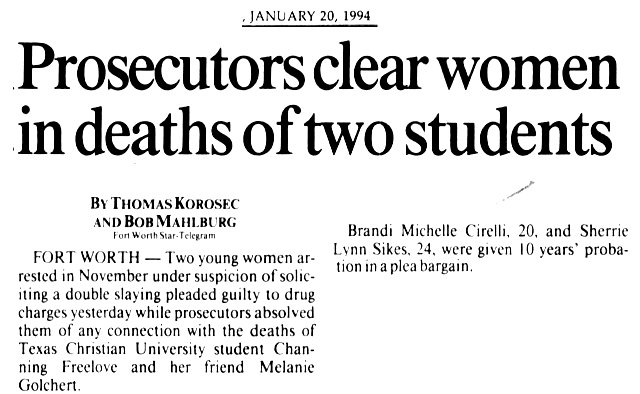 In January 1994 prosecutors dismissed the charge of soliciting murder against Cirelli and Sikes.
In January 1994 prosecutors dismissed the charge of soliciting murder against Cirelli and Sikes.
Assistant District Attorney Moore said, “The dismissal reads that a grand jury investigation found insufficient evidence” that Cirelli and Sikes tried to solicit the murder of Freelove. “I’ll add that they were both administered polygraph tests, and they passed with flying colors.”
Police Chief Thomas Windham said the evidence against Cirelli and Sikes was not very solid from the beginning but was sufficient to establish probable cause for their arrest.
With the solicitation charge dropped, Cirelli and Sikes pleaded guilty instead to drug charges: They confessed to stealing marijuana from Freelove and to possessing between four ounces and five pounds of marijuana, a third-degree felony punishable by up to ten years in prison.
Cirelli and Sikes were sentenced to ten years’ probation.
(Amateur detective idle question 1: Had Cirelli and Sikes hoped to reap two benefits by stealing Freelove’s marijuana? 1. By robbing Freelove, they gained ten pounds of marijuana. 2. By robbing Freelove, they rendered her unable to repay a man who had threatened to kill her—an outcome Cirelli and Sikes would not mourn.)
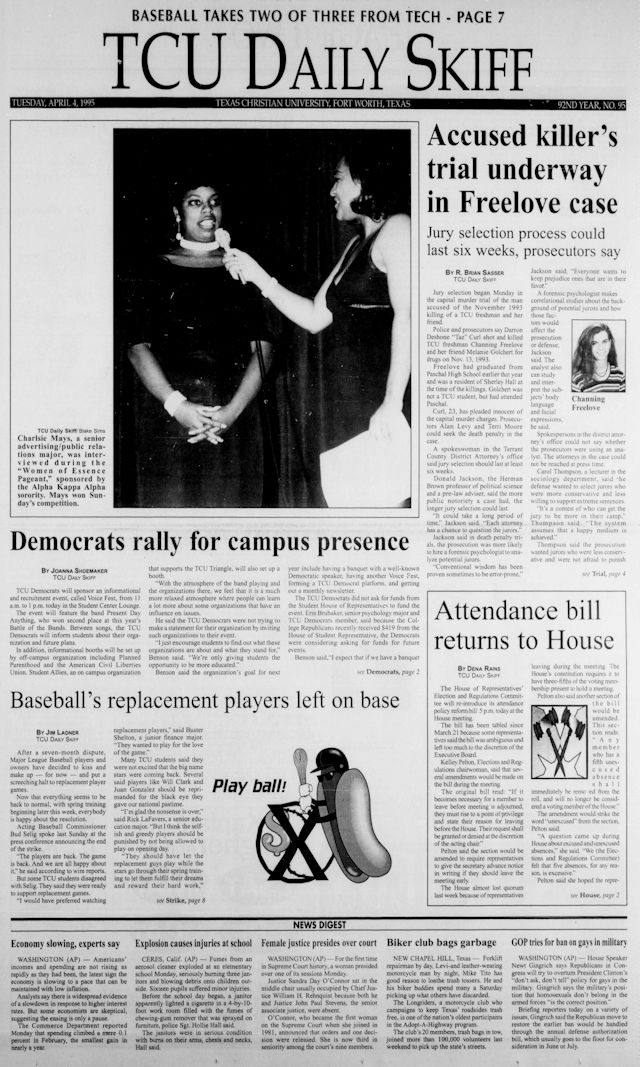 Jury selection for the capital murder trial of Darron Deshone “Taz” Curl began in April 1995. Because Channing Freelove had been a TCU student, the Daily Skiff covered the trial.
Jury selection for the capital murder trial of Darron Deshone “Taz” Curl began in April 1995. Because Channing Freelove had been a TCU student, the Daily Skiff covered the trial.
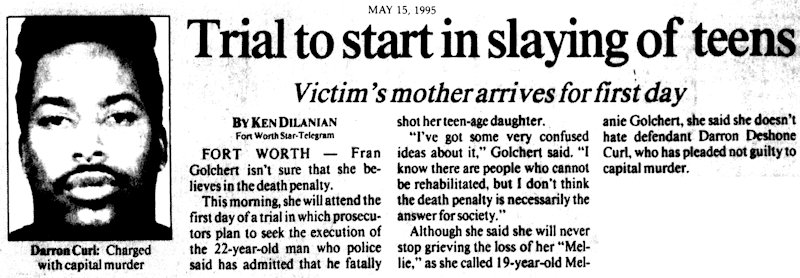 Testimony began in May. Curl had turned down an offer to plead guilty and accept a forty-year prison sentence and chose instead to plead not guilty and face a trial for capital murder.
Testimony began in May. Curl had turned down an offer to plead guilty and accept a forty-year prison sentence and chose instead to plead not guilty and face a trial for capital murder.
Curl did not deny killing the two women. He had told police that his co-defendant, Melvin James “Boot” White II, was the leader of the gang and that to cross White meant death. Curl had feared that White would kill him if he did not kill Freelove and Golchert.
Melanie Golchert’s mother Fran was in the courtroom.
Mrs. Golchert said, “I’ve got some very confused ideas about it. I know there are people who cannot be rehabilitated, but I don’t think the death penalty is necessarily the answer for society. . . . I feel a real sadness, for me and mine and for his [Curl’s] family. His family is going through just as much as I could. This is a terrible loss for everybody.”
Prosecutors said Curl and White had showed Channing Freelove and Melanie Golchert no such compassion.
Sources said that as Curl and White had waited for Freelove to arrive with the marijuana on the night of November 12, White said to Curl: “When she gets here, I’m going to get her to give me the weed where I can look at it. . . . I’m going to tell you to pay her. When I say that, that’s when I want you to shoot her.”
Prosecutors cited a statement that Curl gave to police:
“I just closed my eyes and leaned in and shot Channing one time. And then I backed up a little and shot at the second girl on the passenger side.”
Curl told police that as he and White removed the two bodies from the car, Curl shot each woman again “to make sure they were dead.”
Curl’s defense lawyer, Kimberly Kaufman, told jurors they should consider the character of the two victims.
“Channing and Melanie danced with the devil,” Kaufman said. “And when you dance with the devil you’ve got to pay the price.”
 Darryl Ellis, a fellow gang member, testified that when he arrived at Curl’s apartment the morning after the murders, Curl was wiping blood off his .380-caliber handgun with a blue bandanna. (Blue was a Crips gang color.)
Darryl Ellis, a fellow gang member, testified that when he arrived at Curl’s apartment the morning after the murders, Curl was wiping blood off his .380-caliber handgun with a blue bandanna. (Blue was a Crips gang color.)
Ellis said Curl drove Ellis past the crime scene—even as police were examining it—and bragged about Melanie Golchert’s expression as he shot Channing Freelove and then turned the pistol to Golchert.
“He told me, ‘You should have seen the look on that —— face when I shot [Freelove], knowing she was going to be next,’” Ellis said.
Eventually, Ellis said, the two drove “to hide the gun” under brush near railroad tracks.
(Amateur detective idle question 2: Police said that White and Curl, along with other witnesses, had been in the apartment of Sikes and Cirelli when the subject of killing Freelove came up. Did White and Curl think that if they killed Freelove and took her pound of marijuana, the crime would be pinned on Sikes and Cirelli?)
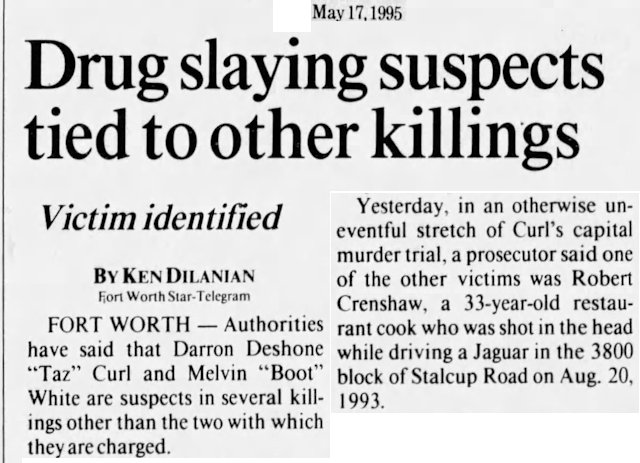 Prosecutors said Curl and White were suspects in several other killings, including the murder of Robert Crenshaw, a restaurant cook who was shot in the head while driving a Jaguar in the 3800 block of Stalcup Road in 1993.
Prosecutors said Curl and White were suspects in several other killings, including the murder of Robert Crenshaw, a restaurant cook who was shot in the head while driving a Jaguar in the 3800 block of Stalcup Road in 1993.
Witnesses also linked Curl to two drive-by shootings, a jailhouse assault on a deaf-mute prisoner, and a sampler of lesser crimes.
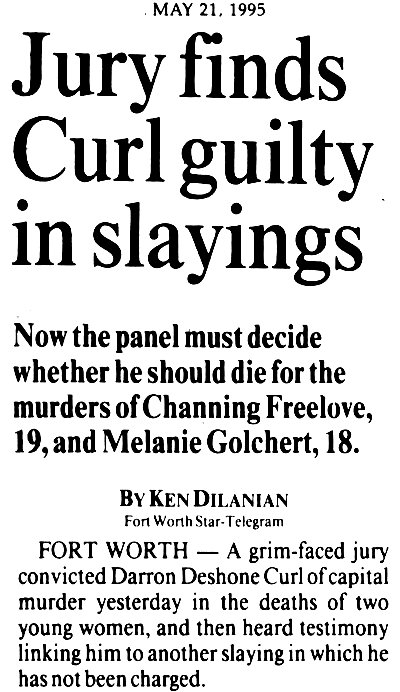 Curl’s jury found him guilty of capital murder.
Curl’s jury found him guilty of capital murder.
The Star-Telegram wrote: “Curl, twenty-three, a muscular, mustachioed man wearing a blue [the Crips gang color] jacket and striped tie, closed his eyes and shook his head almost imperceptibly as Judge Everett Young read the verdict.”
The mothers of the two victims cried silently.
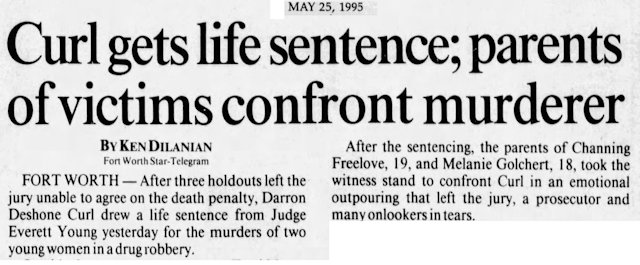 Curl was sentenced to life in prison after three jurors could not vote for the death penalty. Present in the courtroom was Curl’s mother.
Curl was sentenced to life in prison after three jurors could not vote for the death penalty. Present in the courtroom was Curl’s mother.
After the sentencing, the parents of Channing Freelove and Melanie Golchert took the witness stand to confront Curl.
Jon Freelove, Channing’s father, said, “Darron, you didn’t give us any time for goodbyes for our children.”
Jana Freelove, Channing’s mother, said, “You murdered my nineteen-year-old daughter on her birthday. I never sleep much anymore. I want her to come through the door and say ‘Mom, I’m home.’”
Fran Golchert, Melanie’s mother, said, “It’s still incredible to me—just amazing—that you could do the things you have done. I saw the fear in your mom’s face. That was the same fear you saw on my daughter’s face. That’s what you’re going to have to live with.”
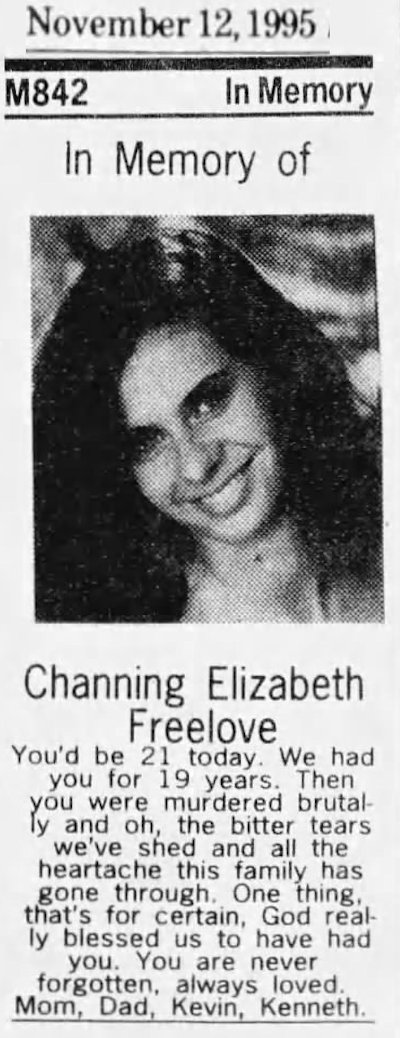 This memorial appeared on the second anniversary of the murder of Channing Freelove. It was also her birthday.
This memorial appeared on the second anniversary of the murder of Channing Freelove. It was also her birthday.
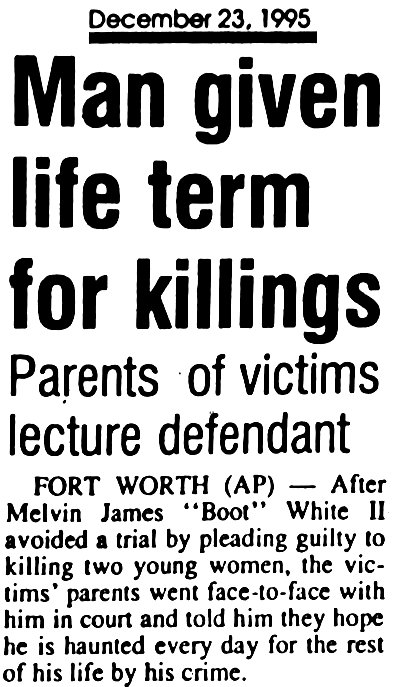 Five weeks later Melvin James “Boot” White II pleaded guilty to murdering Freelove and Golchert, although he claimed that he was guilty only of aggravated robbery and that Curl alone had killed the women.
Five weeks later Melvin James “Boot” White II pleaded guilty to murdering Freelove and Golchert, although he claimed that he was guilty only of aggravated robbery and that Curl alone had killed the women.
White was sentenced to life in prison.
 The parents of Freelove and Golchert, as they had with Curl, confronted White from the witness stand.
The parents of Freelove and Golchert, as they had with Curl, confronted White from the witness stand.
Jon Freelove said, “All I can tell you is what I told your buddy. You didn’t give us any time for goodbyes. You don’t know what it’s like to lie next to your wife in bed every night and hear her cry in her sleep. I hope you live with what you did for the next forty years.”
Jana Freelove sobbed uncontrollably as she said, “I have no life anymore. You didn’t have to kill those girls. You could have gone back to your cave and left them alone.”
Fran Golchert said, “I came here today so I could see your face. I really hope that you’re haunted every day of your life.”
As the parents spoke, White stared back without showing emotion.

Channing Freelove is buried in Laurel Land Cemetery under a tombstone made heavier by a single word.
Other tombstones that tease:
“Assassinated”: The Last Supper of Mary Agnes Hester
Islands of Eternity (Part 3): Family First (West Side)
Posts About Crime Indexed by Decade
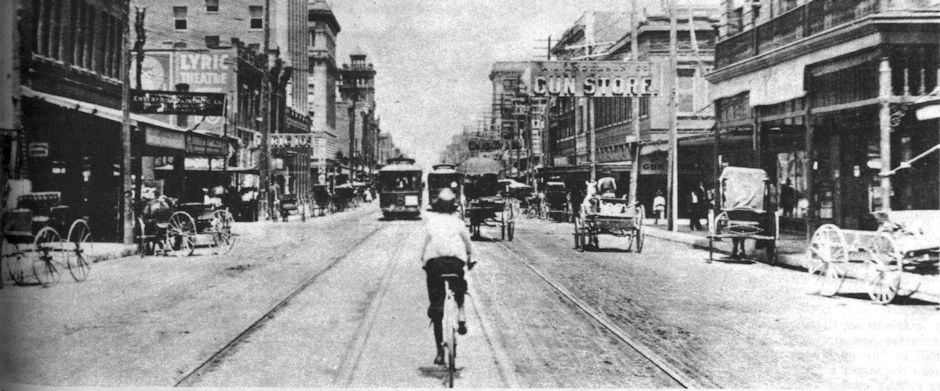





I went to school with Cirelli. This is just as sad today as it was 20 yrs ago. So much loss over so little.